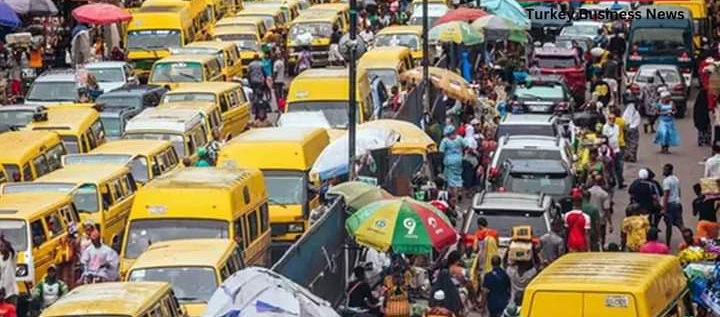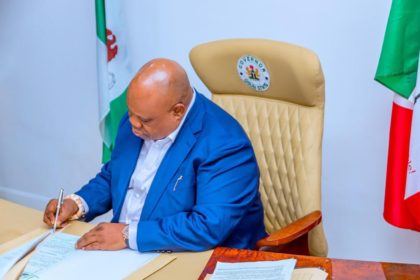By Adeyemi Adekunle
Nigeria, Africa’s largest economy, is grappling with an alarming decline in productivity that has sent its per capita income plummeting from $3,223 in 2014 to a mere $877.07, according to the International Monetary Fund (IMF) in its October 2024 World Economic Outlook. This precipitous drop signals a multi-faceted crisis within a nation previously celebrated for its industrious and resilient populace.
The current economic situation raises pressing questions regarding Nigeria’s capacity to transform its considerable demographic strength into sustainable economic growth. With a population exceeding 200 million, Nigeria has long been seen as a potential powerhouse for economic development in Africa. However, the latest figures starkly contrast this outlook, painting a picture of vulnerability that demands immediate attention and action.
Local economists warn that the decline in per capita income is not just a number; it represents the declining standard of living for millions of Nigerians. For a nation rich in resources and potential, the current state of affairs highlights a worrying trend of economic underperformance. Analysts attribute this decline to a mix of infrastructural deficits, policy inconsistencies, and challenges in human capital development, prompting a need for comprehensive reforms.
Infrastructure, a significant backbone for any economy, has been a longstanding issue in Nigeria. From inadequate power supply to poor transportation networks, the nation’s infrastructure woes hinder productivity and stifle economic growth. Small and medium-sized enterprises (SMEs), which form the backbone of the economy, especially in urban areas, are particularly affected. Many businesses struggle to operate efficiently due to unreliable electricity and poorly maintained roads, further exacerbating the revenue crisis.
Moreover, inconsistent policies over the years have created a climate of uncertainty that deters foreign investment, a crucial component for any developing economy. Investors often seek stable and predictable environments to place their capital, yet the frequent shifts in economic policies and regulations in Nigeria have made it less attractive. As a result, potential investment dollars are diverted to other countries where the economic climate is more stable.
The human capital aspect cannot be overlooked either. Despite a large and youthful population, there exists a significant skills gap that has impeded productivity. While many young Nigerians are eager for employment, the mismatch between their skills and the requirements of the job market poses a continual barrier to economic growth. Educational reforms and vocational training programs are urgently needed to bridge this gap and empower the youth with the necessary skills for today’s labor market.
The urgency of addressing these challenges has never been clearer. As Nigeria seeks to recover from this economic slide, experts call for a strategic overhaul of its economic policies and infrastructure development initiatives. Investment in education and training, coupled with targeted infrastructure projects, could pave the way for revitalizing the economy.
Organizations and stakeholders within Nigeria are beginning to recognize this need. Local business leaders and politicians are calling for collaborative efforts to engage various sectors in discussions about long-term solutions. The emphasis must be on bringing together public and private entities to devise strategies that bolster economic growth through infrastructural improvements and policy stabilization.
At the grassroots level, communities are feeling the impact of this decline acutely. Families report struggles to meet basic needs as income dwindles, and many are forced to reconsider their economic engagements. The knock-on effects of reduced purchasing power can be felt in markets, schools, and healthcare institutions, where fewer resources mean diminished growth opportunities for future generations.
As Nigeria stands at this critical juncture, the path forward must combine strategic thinking and decisive action. It will require the government, businesses, and citizens to unite and commit to tangible reforms that prioritize economic recovery and sustainable growth.
The time for rhetoric has passed; immediate steps must be taken to restore confidence in Nigeria’s economic prospects. Without cohesive action, the nation risks entrenching its current challenges and endangering its status as a regional leader in Africa.
The resilience of the Nigerian people is an asset, but it must be matched with effective policies, strong infrastructure, and an empowered workforce to transform potential into reality. As such, the nation must seize this moment, not just to recover, but to rebuild and reimagine its economic future.




